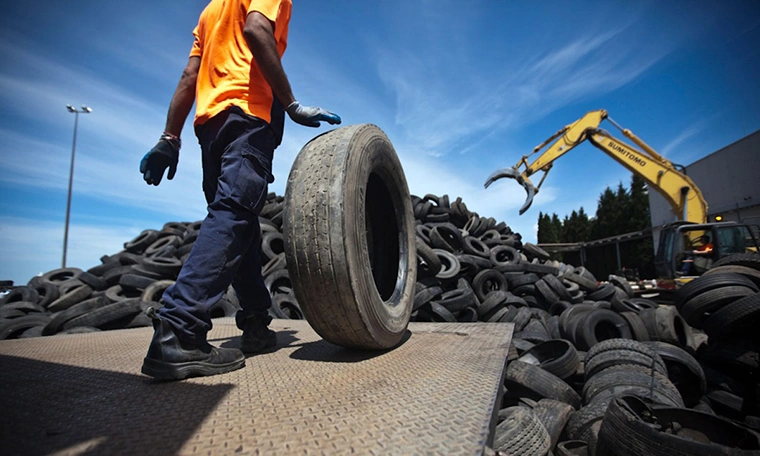Your Complete Guide to Recycling Innovation
Imagine turning a pile of discarded tires into premium raw materials for construction, sports, and manufacturing. That's exactly what a rubber powder production line achieves. This isn't just recycling—it's a high-tech metamorphosis. Let's break down how it works and why it's revolutionizing waste management.
1. What Exactly is a Rubber Powder Line?
Think of it as an industrial “tire-to-treasure” pipeline. A rubber powder line is a fully integrated system that converts waste tires into fine rubber granules (30-100 mesh)—the kind factories crave. The magic happens through a staged process:
Shredding: Whole tires are sliced into palm-sized chunks.
De-beading: Steel wires embedded in tire beads are extracted for resale as scrap metal.
Granulating: Rubber chunks are ground into 2-5mm particles.
Micronizing: Final milling reduces particles to powder as fine as talcum.
The result? 1 ton of tires yields approximately 700kg of rubber powder, 200kg of steel, and 100kg of fiber—all market-ready.
2. The Machinery Behind the Magic
A top-tier production line combines robust engineering with precision. Here's the dream team:
Tire Shredder (Primary Cutter)
Capacity: 2-10 tons/hour
Output: 50-100mm rubber chunks
Bonus: Automatically ejects steel wires for collection.
Rasper (Secondary Grinder)
Reduces chunks to 10-20mm granules.
Removes 99% of remaining fiber via cyclone separators.
Granulator (Precision Mill)
Grinds granules into 2-5mm particles.
Energy-efficient design slashes power use by 30% vs older models.
Fine Miller (Pulverizer)
Uses cryogenic or ambient grinding to achieve 30-100 mesh powder.
Optional: Add magnetic filters for 99.9% purity.
3. Why This Tech is a Triple Win
For the Planet
1 line = 10,000 tons/year diverted from landfills
Reduces microplastic pollution from tire wear by 40% (EPA data).
For Your Wallet
ROI Breakdown:
Rubber powder sells for 400-800/ton (depending on mesh).
Steel wires fetch $200/ton as scrap.
Fiber sells to insulation manufacturers at $50/ton.
Example: A mid-sized plant processing 5 tons/day grosses $1.2M annually.
For Industry
Construction: Rubberized asphalt (20% powder mix) lasts 2x longer.
Automotive: 30% of new tires now contain recycled powder.
Consumer Goods: Yoga mats, shoe soles, even phone cases.

